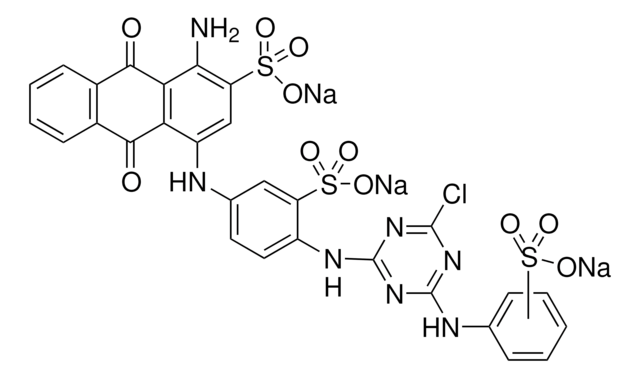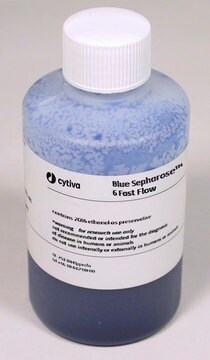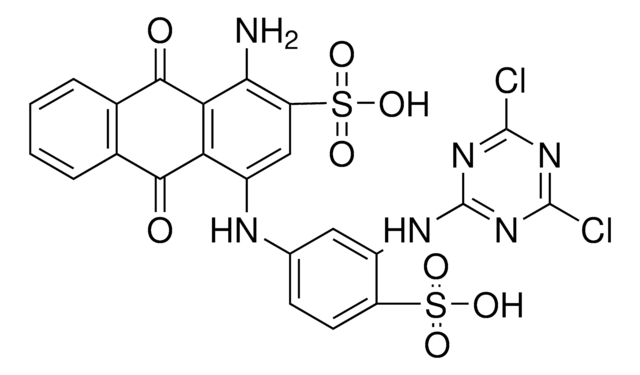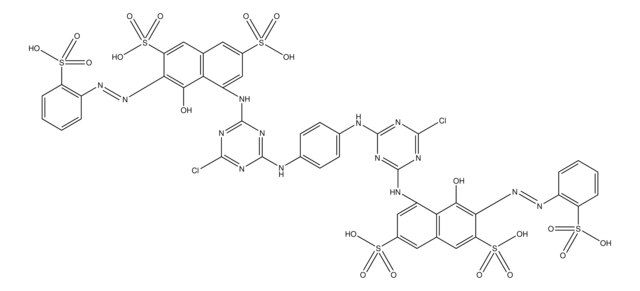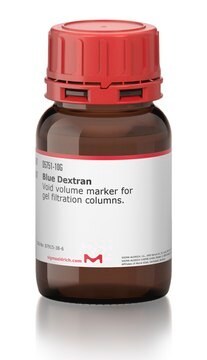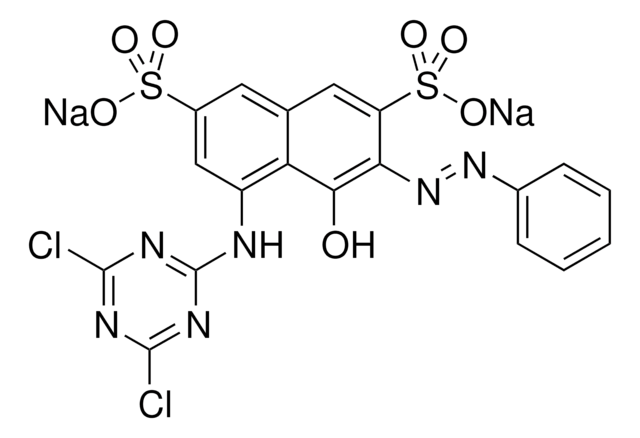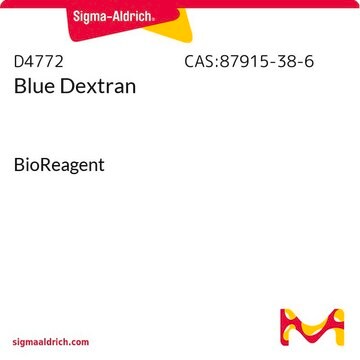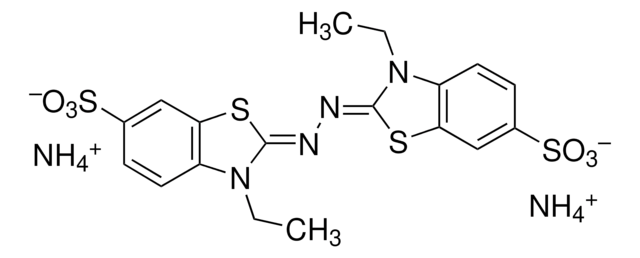B1064
Cibacron Blue 3G-A
Dye content ≥55 %, Powder
Synonyme(s) :
Cibacron Blue; 1-amino-4-[4-[[4-chloro-6-(2-sulfoanilino)-1,3,5-triazin-2-yl]amino]-3-sulfoanilino]-9,10-dioxoanthracene-2-sulfonic acid
About This Item
Produits recommandés
Nom du produit
Cibacron Blue 3G-A, Dye content ≥55 %
Forme
powder
Composition
Dye content, ≥55%
Couleur
dark blue
Solubilité
H2O: 10 mg/mL, blue
Application(s)
diagnostic assay manufacturing
hematology
histology
Température de stockage
room temp
Chaîne SMILES
Nc1c(cc(Nc2ccc(Nc3nc(Cl)nc(Nc4ccccc4S(O)(=O)=O)n3)c(c2)S(O)(=O)=O)c5C(=O)c6ccccc6C(=O)c15)S(O)(=O)=O
InChI
1S/C29H20ClN7O11S3/c30-27-35-28(33-16-7-3-4-8-19(16)49(40,41)42)37-29(36-27)34-17-10-9-13(11-20(17)50(43,44)45)32-18-12-21(51(46,47)48)24(31)23-22(18)25(38)14-5-1-2-6-15(14)26(23)39/h1-12,32H,31H2,(H,40,41,42)(H,43,44,45)(H,46,47,48)(H2,33,34,35,36,37)
Clé InChI
YKCWQPZFAFZLBI-UHFFFAOYSA-N
Vous recherchez des produits similaires ? Visite Guide de comparaison des produits
Application
Actions biochimiques/physiologiques
Code de la classe de stockage
11 - Combustible Solids
Classe de danger pour l'eau (WGK)
WGK 3
Point d'éclair (°F)
Not applicable
Point d'éclair (°C)
Not applicable
Faites votre choix parmi les versions les plus récentes :
Certificats d'analyse (COA)
Vous ne trouvez pas la bonne version ?
Si vous avez besoin d'une version particulière, vous pouvez rechercher un certificat spécifique par le numéro de lot.
Déjà en possession de ce produit ?
Retrouvez la documentation relative aux produits que vous avez récemment achetés dans la Bibliothèque de documents.
Notre équipe de scientifiques dispose d'une expérience dans tous les secteurs de la recherche, notamment en sciences de la vie, science des matériaux, synthèse chimique, chromatographie, analyse et dans de nombreux autres domaines..
Contacter notre Service technique